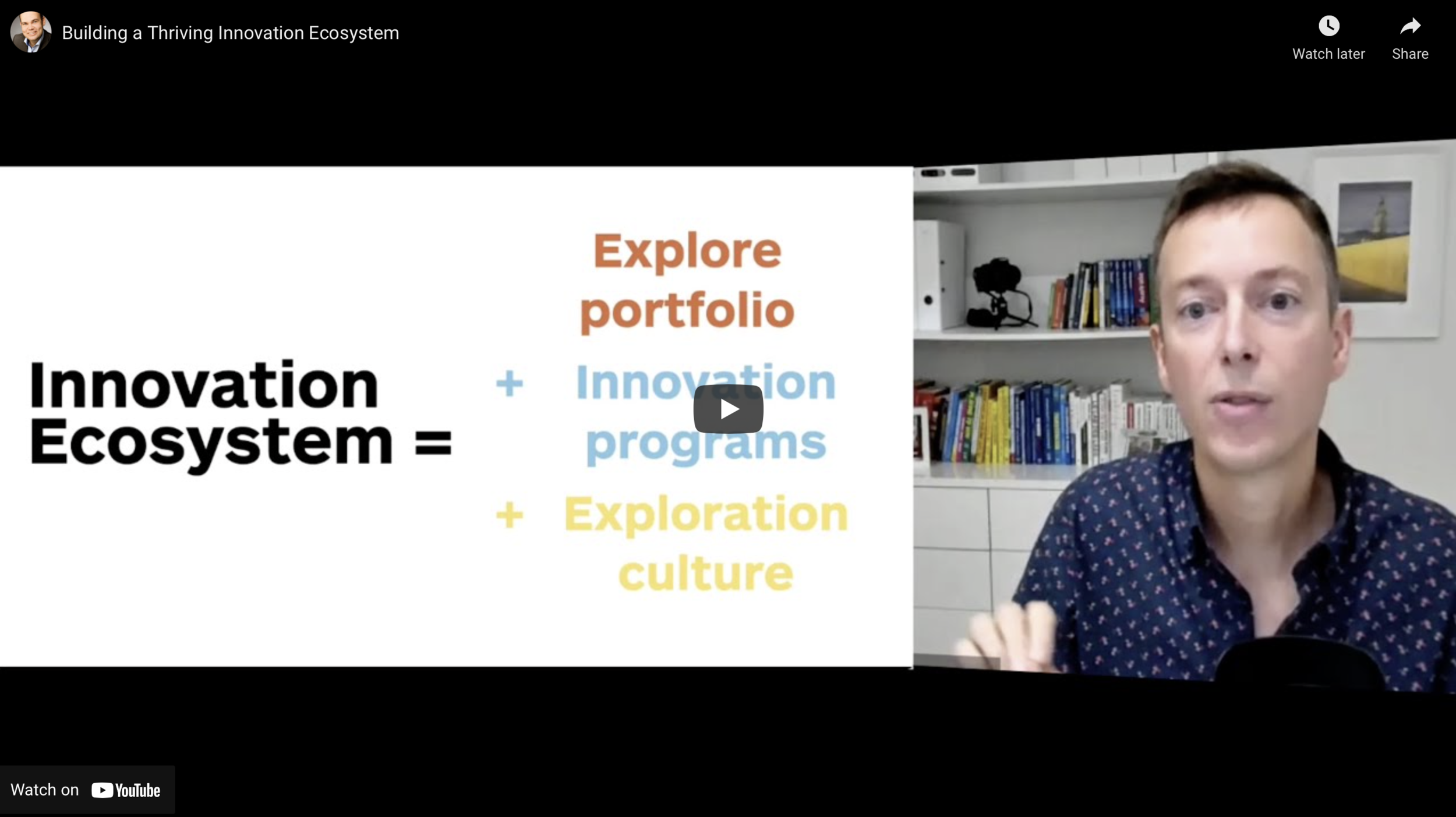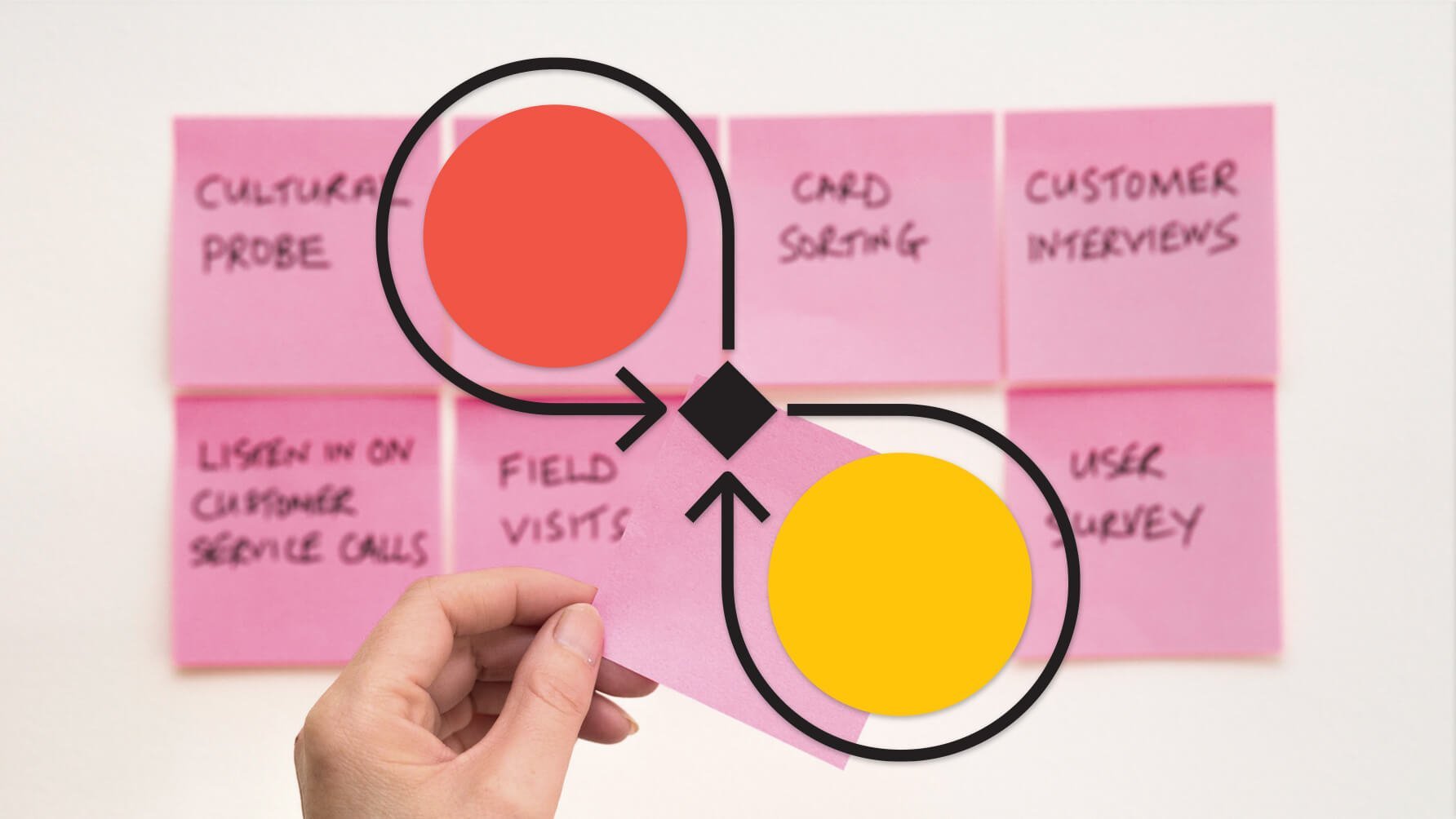Experimentation is your path to growth!
What’s the common root behind the ideas that revolutionised entrepreneurship and venture building in the last 25 years? Think of Rita McGrath and Ian MacMillan’s discovery-driven planning, Steve Blank’s customer development process, Eric Ries’ Lean Startup and more recently David Bland and Alex Osterwalder’s Testing Business Ideas.
At the root of those different frameworks is the core idea that experimentation is the way to deal with high uncertainty of new business ventures. A much better way than just executing an idea based on untested business assumptions and then hoping for the best.
In the video I explain in a bit more details why exploring new business ideas is radically different from running an existing business, and how critical experimentation is to explore new business ideas in the context of a large organisation.
One of my clients understood this well and selected “experimentation” as the priority skill for their employees to learn in the next couple of years.
Experimentation as part of the innovation process.
In Testing Business Ideas, David Bland and Alex Osterwalder explained how experimentation fits into the innovation process and introduced the business design and testing double-loop. In the below video I go through the different steps of the business design and testing double-loop one-by-one, highlighting what innovation teams do at each step when they explore ideas for new products, or services.
Now it should be clear why experimentation is such a critical skill to create new products, services. But it doesn’t stop there… Once you master the skill of experimentation in the relatively safe space of new products and services you soon realise the potential of experimentation goes way beyond. The same experimentation principles can be applied to challenging untested assumptions in other aspects of the business (e.g., business model, business strategy). Challenging untested assumptions of your strategy and experimenting with alternatives can lead to significant business model shifts and value creation. In The Invincible Company we tell the story of Hilti and its radical shift from a Product to a Service Business Model for instance.
Finally, the same experimentation principles can also be applied to our personal life. Challenging untested assumptions behind our own behaviour and running safe experiments of alternative behaviours can often unlock meaningful and long-lasting personal growth.
As Mark Twain said, “It ain't what you don't know that gets you into trouble. It's what you know for sure that just ain't so.”
Actually, I’m assuming Mark Twain said that. Maybe I should go and check…





